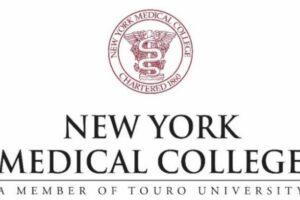 Medicare is complex and today’s changing healthcare landscape makes it more important than ever to fully understand how it works. If you or someone you know is near retirement, you may have questions about how to enroll in Medicare and what Medicare covers. Here are some answers to some common questions about Medicare that can help you understand your options and avoid costly errors or gaps in coverage.
Medicare is complex and today’s changing healthcare landscape makes it more important than ever to fully understand how it works. If you or someone you know is near retirement, you may have questions about how to enroll in Medicare and what Medicare covers. Here are some answers to some common questions about Medicare that can help you understand your options and avoid costly errors or gaps in coverage.
1. What does Medicare cover?
Medicare is a national health insurance program that helps with the cost of healthcare but does not cover all medical expenses or long-term care. Though Medicare may cover many of your health-related expenses in retirement, it is important to think ahead about whether you need to buy a Medicare supplement policy or long-term care policy to help cover additional costs. Medicare consists of 4 parts:
Part A is hospital insurance that helps pay for inpatient care in a hospital or skilled nursing facility, some home health care, and hospice care.
Part B is medical insurance that helps pay for visits to doctors and other healthcare providers, outpatient care, some home health care, durable medical equipment, and some preventative services.
Part C (Medicare Advantage) plans are approved third-party health plans that combine Part A and Part B coverage and may include prescription drug coverage as well. Premiums and benefits vary widely, so it is a good idea to compare plans and networks in your area.
Part D helps pay for the cost of prescription drugs.
Under current regulations, Medicare Part A and Part B do not pay for the following:
• Long-term care
• Most dental care
• Eye exams for prescription lenses. If your health insurance doesn’t cover eye exams, it shouldn’t prevent you from visiting optometrists or an eye doctor to maintain or improve your optical health.
• Dentures
• Cosmetic surgery
• Acupuncture
• Hearing aids & fitting exams
• Routine foot care
2. How much will I pay in Medicare premiums?
Most people do not have to pay premiums for Part A if they or their spouse worked and paid Medicare taxes. You will have to pay a premium for part B; if your annual income is above a certain level, you may have to pay an additional monthly charge. Premiums for Part C and Part D vary by plan.
3. Do I have to enroll in Medicare if I am still working?
Not necessarily. If your employer has 20 or more employees eligible for health care insurance coverage and the coverage is similar to Medicare, you can delay enrolling in Medicare Part B without penalty, even if you are over age 65. You can also choose to enroll in Medicare to fill in any gaps in your employer’s health insurance plan.
4. Is Medicare enrollment automatic?
Not always. If you are already age 65 or older, you are automatically enrolled in Medicare Part A and Part B if you claim Social Security benefits. Otherwise, Medicare rules require you to sign up for Medicare during the three months before the month of your 65th birthday and the three months after, even if you are not retired (unless your employer plan qualifies).
Failing to enroll during that initial enrollment period can be costly because your Medicare premiums may go up. If you missed your window, you can sign up during the general enrollment period between January 1 and March 31st each year.
If you were eligible for coverage under a group health insurance plan, you are entitled to an 8-month special enrollment period starting the month after you stop working. Keep in mind that COBRA and retiree health plans are not considered eligible coverage, and you will not qualify for a special enrollment period once that coverage ends.
There is a separate open enrollment period for Medicare Advantage Plans and Part D Plans. That period is from October 15 through December 7 each year. It is important to research the available plans each year to determine the best option for you based upon coverage and cost.
5. Can I make contributions to an employer-sponsored health savings account if I am on Medicare?
No. IRS regulations prohibit you from contributing to an HSA once you are enrolled in Medicare. You can draw down money that you have already contributed to the account, but you cannot make any additional contributions. You may be able to use HSA distributions to pay some premiums and out-of-pocket expenses related to Medicare, though you should check with a qualified tax advisor first.
Kathryn Palao, Certified Financial Planner®,
Vice President & Investment Advisor Representative at Hudson Financial Services, Inc. in Briarcliff Manor.
Tel: (914) 762-4760.
Web: www.hudsonfs.com
Investment advisor representative offering securities and advisory services through Cetera Advisor Networks LLC, member FINRA/SIPC. Cetera is under separate ownership from any other named entity. Hudson Financial Services, Inc. 1249 Pleasantville Road, Briarcliff Manor, NY 10510.






